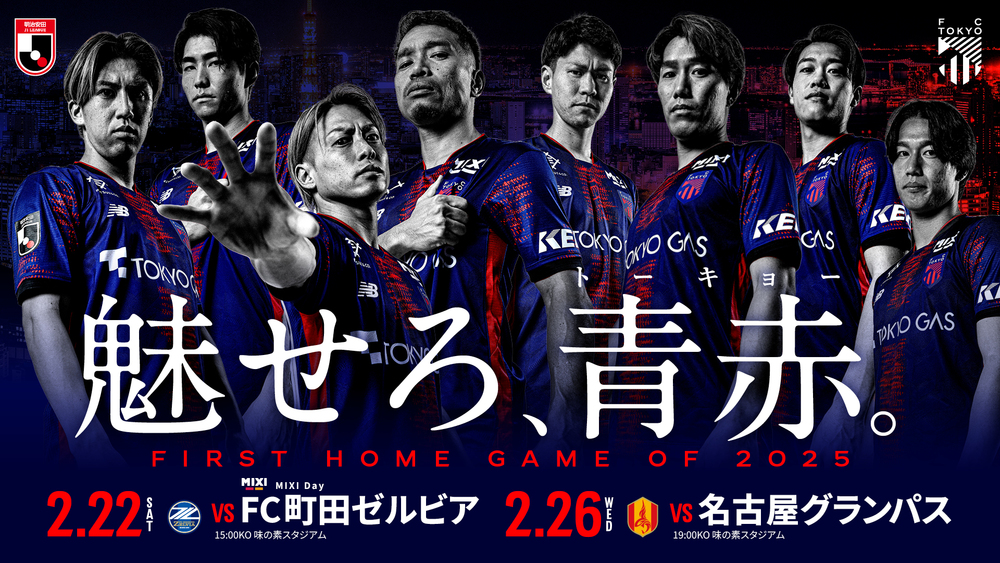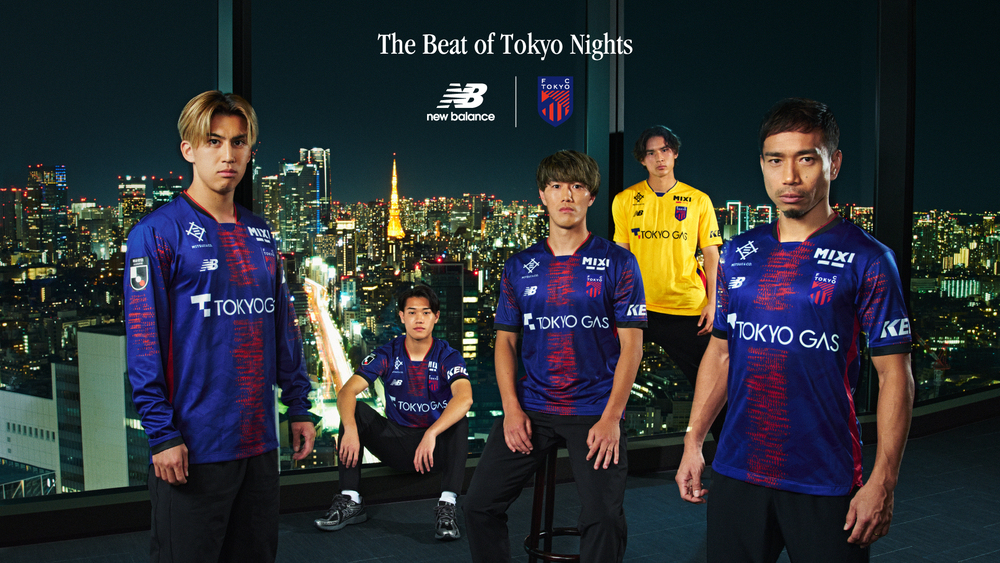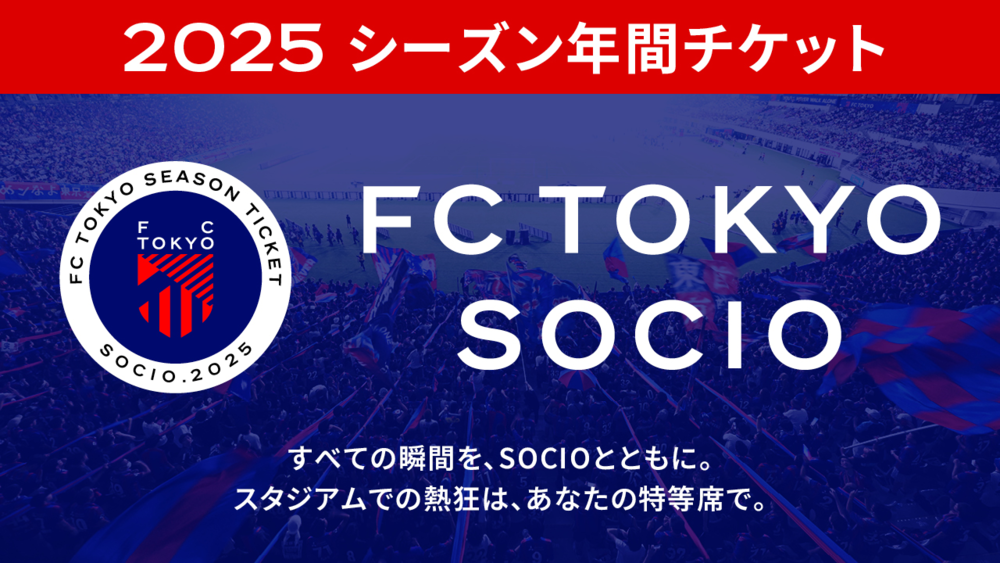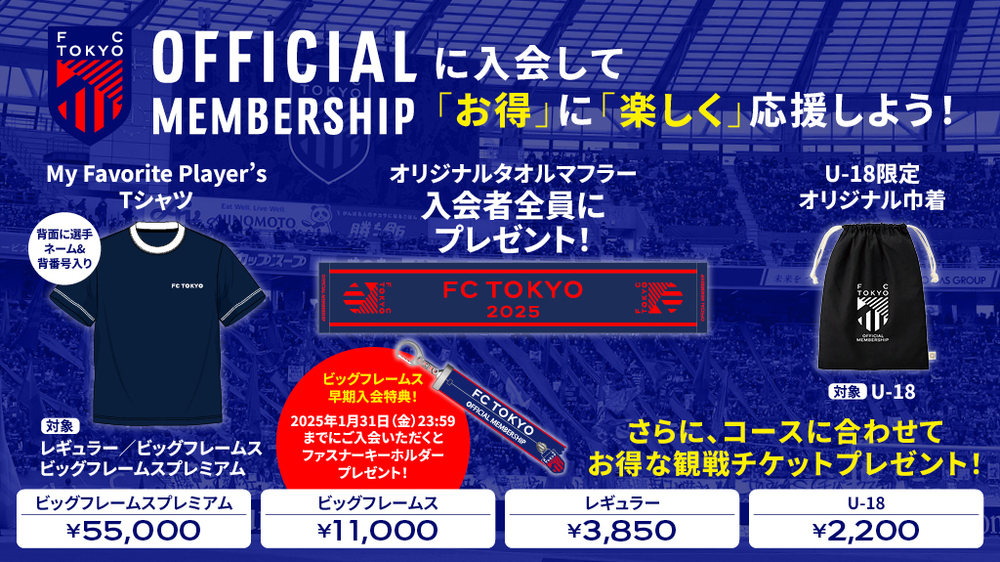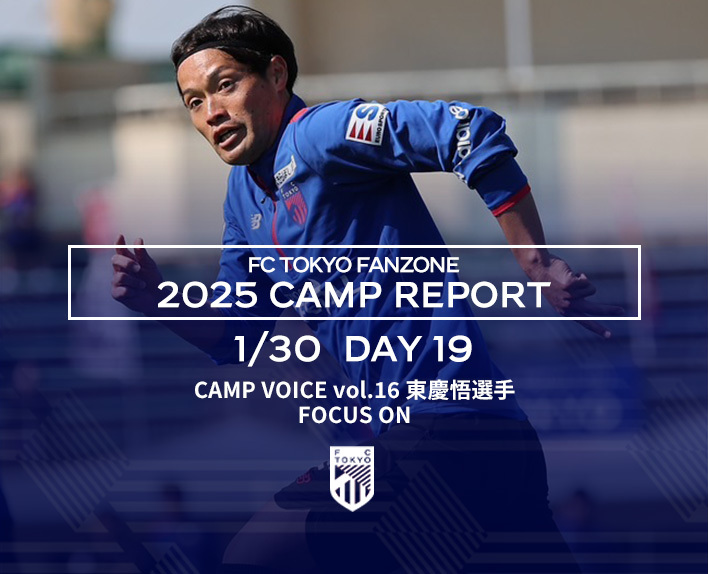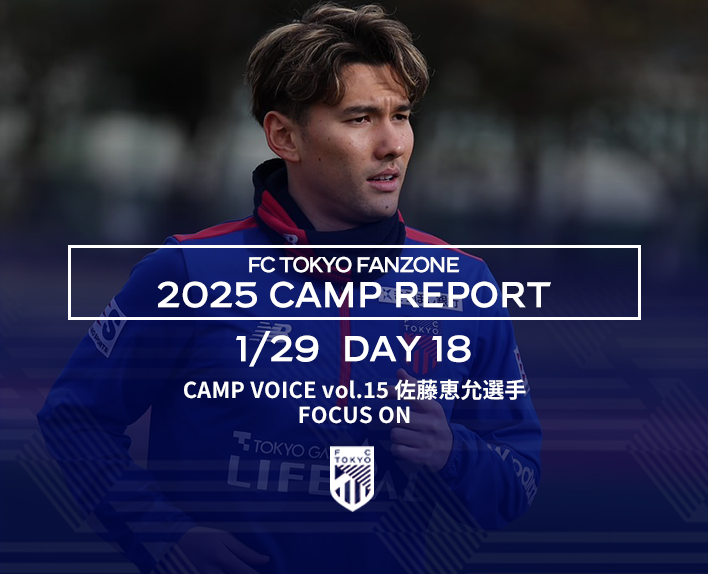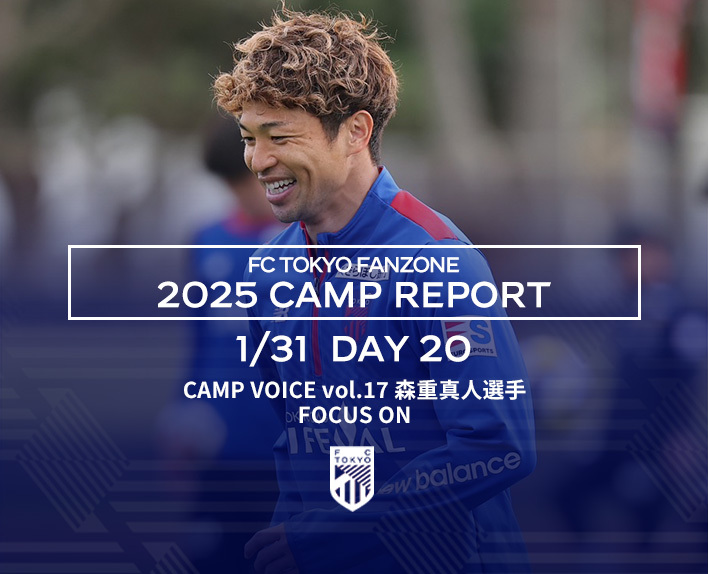1/30Training
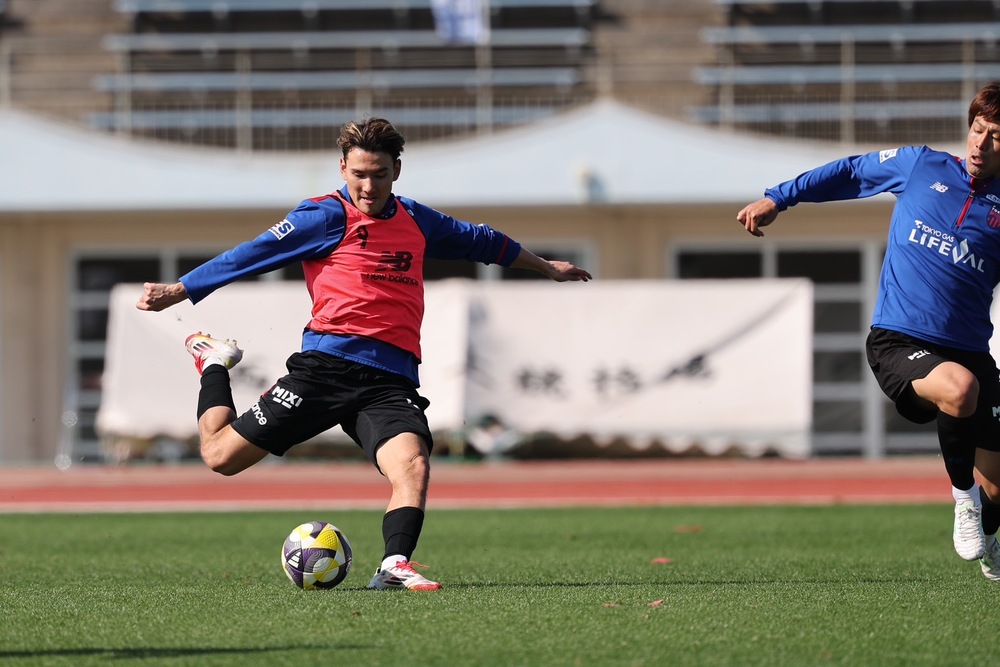
On the sixth day of the Okinawa Itoman camp, defensive checks were conducted at the Itoman Nishizaki Athletic Stadium.
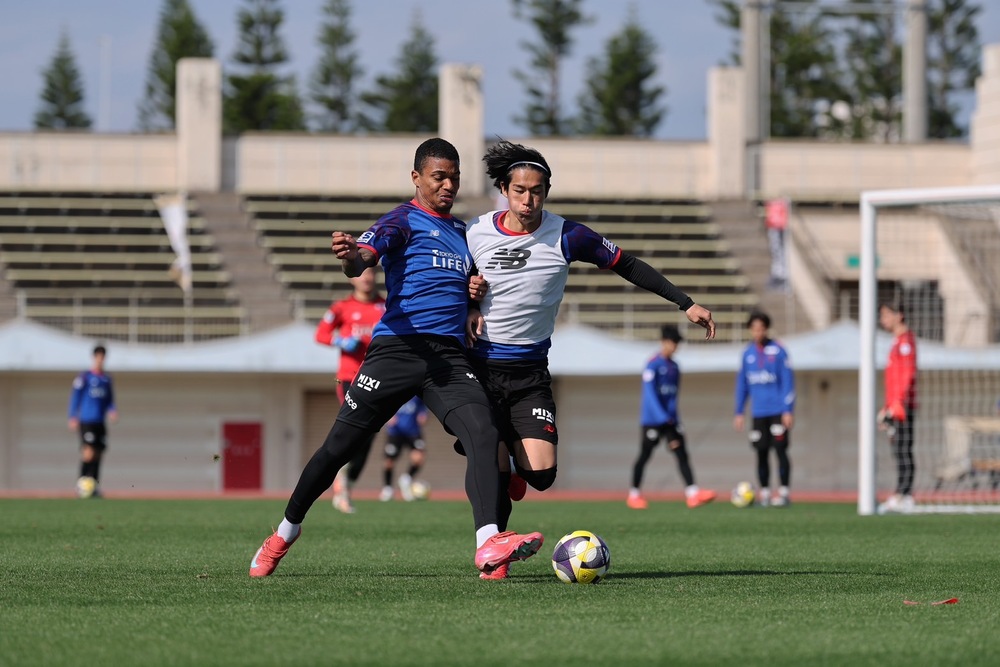
On this day, it was just before starting the tactical menu. Coach Rikizo MATSUHASHI asked, "How many points will Teruhito NAKAGAWA score in these few minutes of practice?" and "How many times will Takahiro KO take the ball away?" He had each player set specific goals. Thanks to the coach's approach, unlike the previous day when mistakes were frequent, the focus on goals created a sense of proactivity, leading to good teamwork.
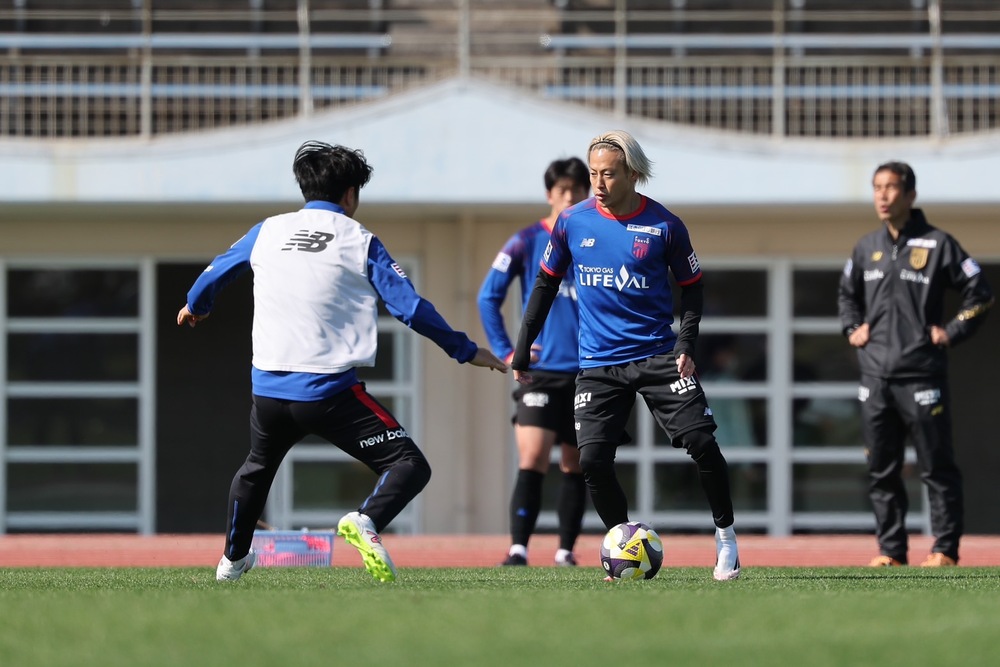
There was also a tense atmosphere during practice, with harsh voices exchanged among the players. At the end of the practice, the coach reflected, saying, "The tense air among us is always present and is a normal thing; I believe it is important for fighting."
"So what about individuals? By each person playing with specific goals, the quality changed dramatically. In that process, a sense of responsibility and tension also emerged. I think it was tough towards the end of the camp, but they pushed through. I am grateful."
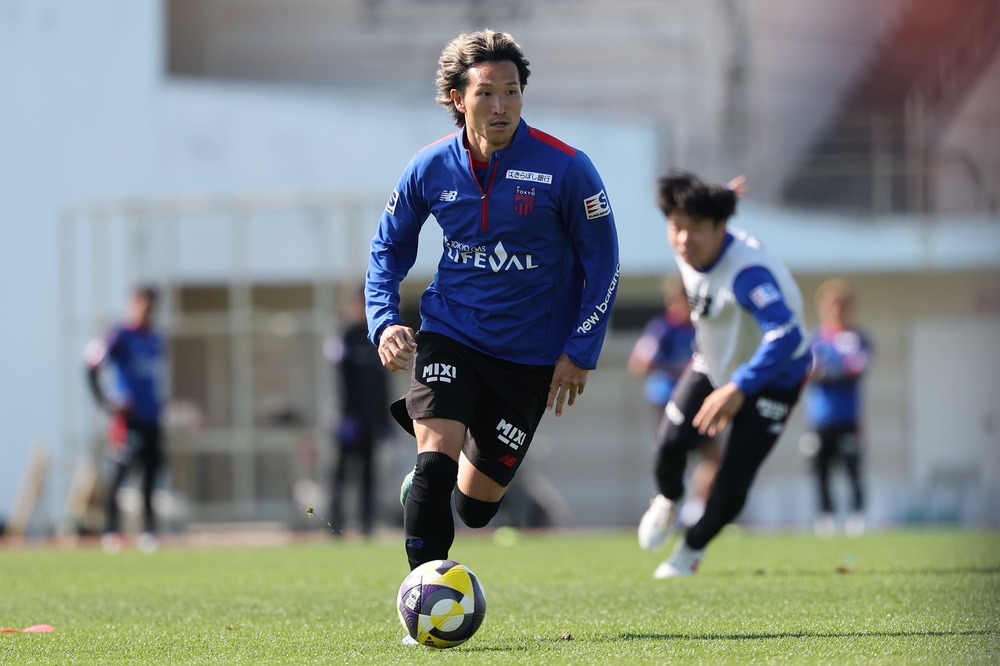
Not only the systems and tactics, but also the mindset and approach to practice have changed. It was a day when this was strongly conveyed to those around.
FOCUS ON
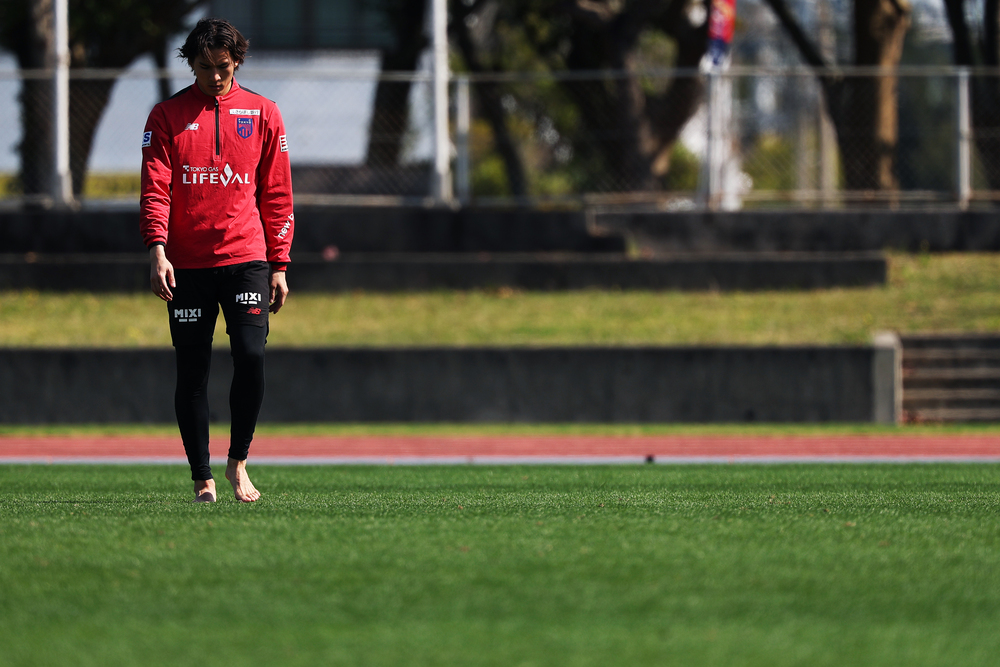
The official photographer selects camp photos in the project "FOCUS ON." On the 6th day of the Okinawa Itoman camp, a photo was chosen of Taishi Brandon NOZAWA, who continues to train until the very end every day in his hometown of Okinawa. On this day, he remained on the pitch until the last person, looking reluctant to leave. Since his rookie days, he has always said, "I want to get better," and has been sweating it out in training. This has not changed even after being selected for the Japan national team last year. There is no end to his great ambition. Taishi's endless journey will continue from here on.
CAMP VOICE vol.16 Keigo HIGASHI
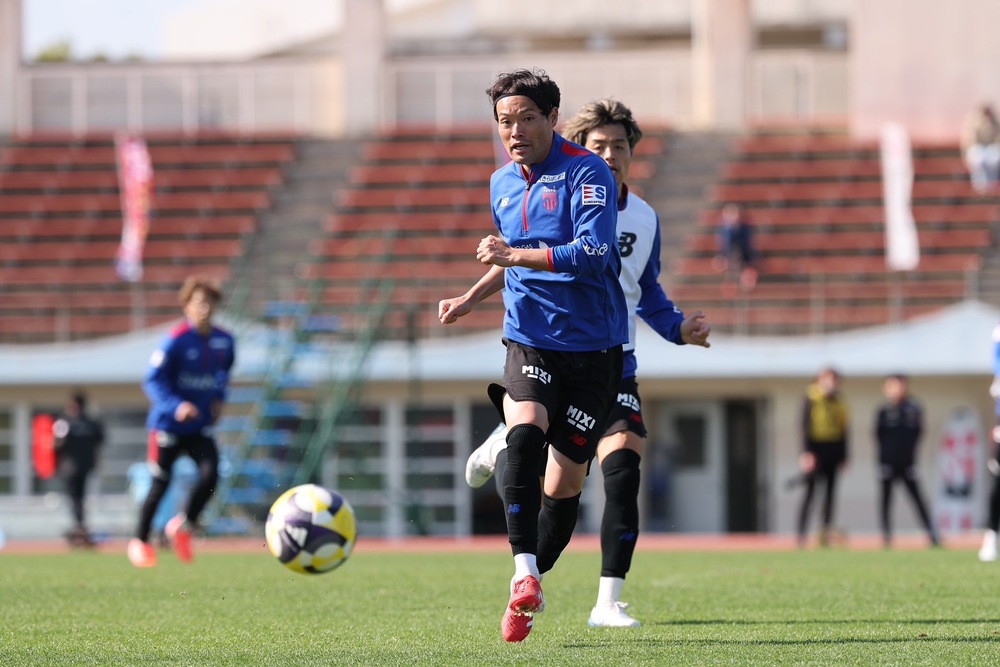
There is a familiar sight at this camp. From the beginning of the camp, Kei KOIZUMI has been taught how to kick by Keigo HIGASHI. Gradually, the effects have started to be seen in both practice and matches. As the days went by, more and more players began to join in. On the sixth day of the Itoman camp, Takahiro KO and Kota TOKIWAKI also joined, and it completely transformed into the 'Keigo Academy.' We spoke to the academy head, who wears the number 10 jersey.
Q, The extra practice that started with player Koizumi is gradually expanding. There have been instances where good passes have come from player Koizumi.
A, I had been telling Kei KOIZUMI since last season, but he may not have had a clear image of it himself. However, he thought it was necessary for him and said, "I want to do it, Keigo-kun," so I accepted that openly. Although he is a rival for the position, if there are things to learn and teach, I want to share them with everyone. Players with high work rates like Kei KOIZUMI and Takahiro KO will need the quality of play and passing as they think about their football careers from here on. As they age, their range of play will also expand, so I think it starts with making them aware of that. They need to grasp the final feeling themselves, but I can convey the timing and mindset, so I definitely believe it’s better to have more players who can deliver good passes from the midfield with speedy players up front.

Q: For example, if Koizumi is used not only as a defensive midfielder but also as a full-back like last season, it will increase the number of passers and be a significant advantage for the team.
A, I have also talked about this with Koizumi. If he can play like a false full-back and come into the center, and from there deliver a vertical pass that gets behind the opponent, it will be bothersome for them. Takashi and Tokiwa still have a long way to go, but if we don't practice, our options won't increase. On the contrary, if we practice, we can kick with confidence, so I told everyone, "Let's do this this season."
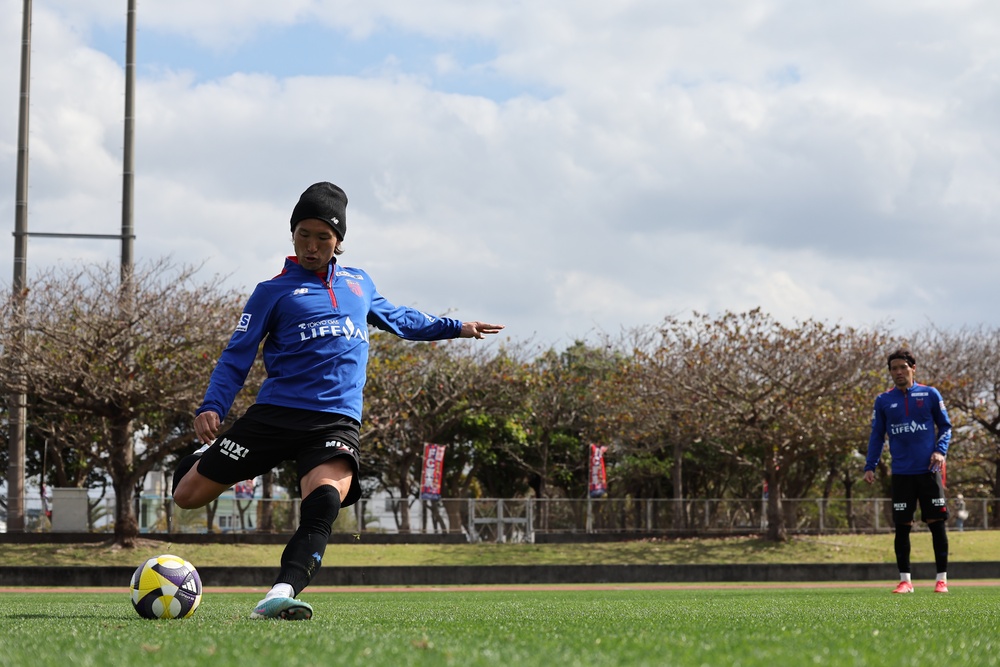
Q, it can also lead to nurturing your own rivals.
As the level of rivals rises, the things I need to do increase, leading to my own growth. While the qualities may differ, if I can do similar things, I start to think about what weapon I should use next. It's an opportunity for me, and I actually want to teach. It's kind of lame to say, 'No, I don't want to,' when they come to me asking to be taught (laughs). They are saying that because they want to grow. It's not forced; the desire to learn and grow is truly gratifying. In that case, I will teach without holding back. It's fun, after all.
Text by Kohei Baba (Freelance Writer)
